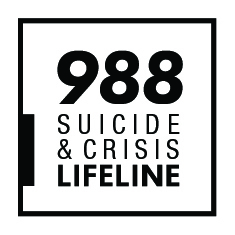Substance Use Disorder Outpatient Treatment
Substance use disorders are serious conditions involving the misuse of alcohol and drugs. They can quickly take over your life.
Fortunately, there are many treatment options available to those who are struggling with alcohol or drugs. At West Michigan CMH, our Substance Use Disorder Outpatient Treatment program is committed to assisting and supporting individuals as they work to achieve remission and live in recovery.
- Outpatient treatment may involve group and/ or individual therapy, peer services, and care management supports to support your recovery. (More below.)
- Remission occurs when someone who once had a substance use disorder reduces their substance-use related symptoms. In this way, they no longer experience distress or impairment in functioning.
- Recovery is the process by which a person learns new meaning in life beyond the issue of substance abuse. When a person is “in recovery,” it is implied that they are not only abstinent from substances, but that they are changing important aspects of themselves. This includes growing as a person and participating in life activities that are meaningful and fulfilling for them and the lives of others.
Services provided by West Michigan CMH or one of our network providers include:
Outpatient Therapy
Outpatient individual or group Counseling. Outpatient therapy may be the only services a person receives or may be part of a whole array of services that someone receives—depending on what is most appropriate to each person’s needs. Outpatient therapy may be provided to individuals, families, or in groups.
Intensive Outpatient Program (IOP)
Intensive Outpatient Program is a service that provides more frequent treatment services (9 hours or more per week) and may include educational groups, therapy groups, support groups, individual counseling, peer recovery coaching services, medications, and other supportive activities.
Care Management
A care manager is a staff person who helps write an individual plan of service and makes sure the services are delivered. His or her role is to listen to a person’s goals, and to help find the services and providers inside and outside the local community mental health services program that will help achieve the goals. A care manager may also connect a person to resources in the community for employment, community living, education, public benefits, and recreational activities. The focus of Care management is on linking, coordinating, and monitoring services with the individual to ensure that each person gets the services most appropriate to their needs and in accordance with their person-centered plan.
Peer Recovery Coaching
Peer Recovery Coaching Services are delivered by persons who have lived experience with a substance use condition. Peers are a valuable part of the care team at West Michigan CMH. They work with persons to help them achieve their recovery goals from the unique perspective of having their own recovery story.
Medication Assisted Treatment
Medication Assisted Treatment (MAT) is the use of medications along with counseling and behavioral therapies to provide a whole person approach to treat substance use disorders (alcohol and opiates, specifically) to support recovery and prevent life problems, overdose, or death.
Withdrawal Management Services
Withdrawal Management is care provided in either an outpatient or inpatient setting where people who are withdrawing from alcohol or other drugs are supported to ensure safety and reduce unnecessary discomfort.
Residential Treatment
Residential Treatment is intensive therapeutic services which include overnight stays in a staffed licensed facility.
Other
This is not an exhaustive list of services available. As part of assessment and person-centered planning, your care manager will assist you in determining what other services might be appropriate to meet your recovery goals.
 or
or 